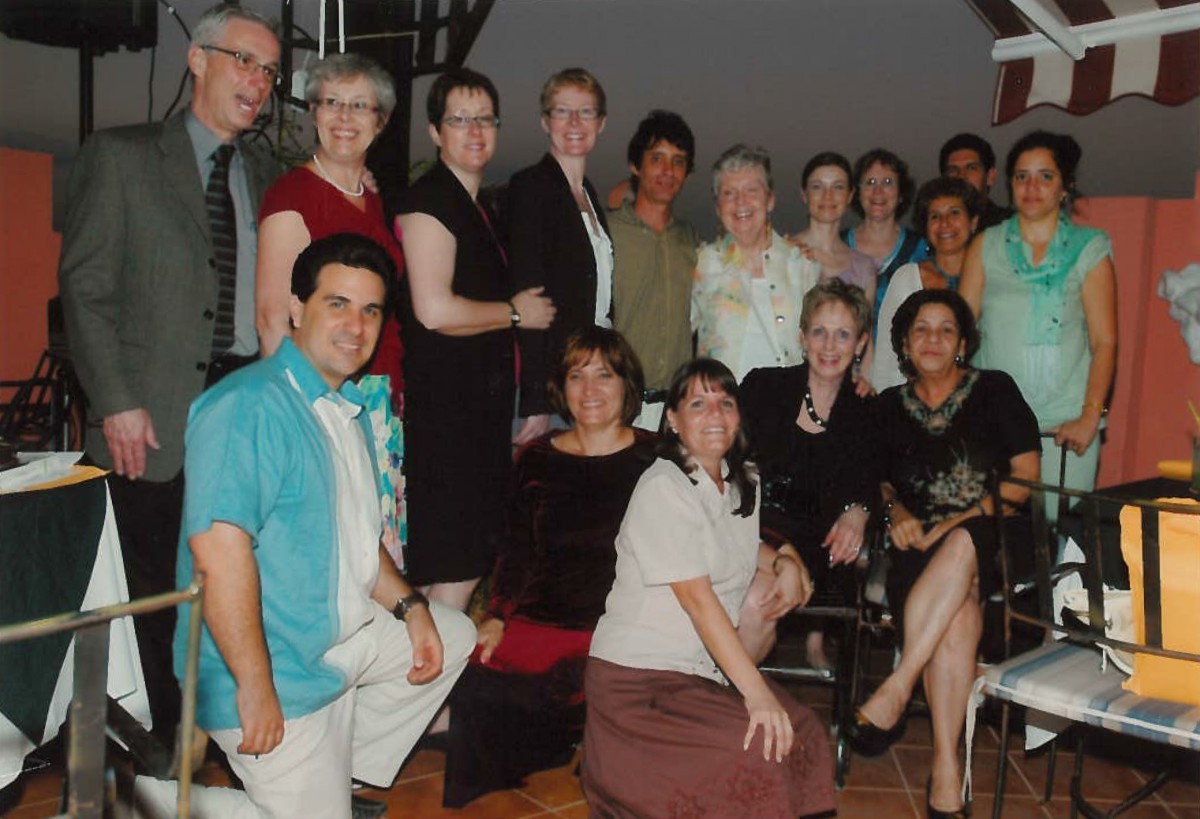
Canadian project director Judith Scanlan (seated second from right), Cuban project director Daisy Berdayes (seated far right), fellow faculty members from the U of M Faculty of Nursing, Cuban PhD students and a translator
A milestone in Cuba: Transforming the profession of nursing
WHAT: A seven-year project (ending in 2011) strengthened nursing practice in Cuba through education and research. U of M nursing professor Judith Scanlan joined forces with stakeholders and officials, including the Cuban Ministry of Health, the Society of Cuban Nurses, the University of Medical Sciences – Havana, and other medical universities in Cuba.
HOW IT WORKED: Scanlan and her team developed and taught a PhD in Nursing Science (seven students graduated by the end of the project). The PhD program has since admitted additional cohorts of doctoral students at the University of Medical Sciences–Havana, as well as at medical universities in Santa Clara and Matanzas. They also revised the existing Master of Nursing program and developed courses for distance delivery, replicated University of Manitoba nursing faculty members’ research projects, and held continuing education workshops in evidenced-based nursing practices for community health nurses outside of Havana.
THE GOAL: To improve nursing practices at the community level and improve the image of nursing in Cuba.
THE INSPIRATION: “Human resource development is a priority in Cuba,” says Scanlan. “At the time of the project development, nursing was identified as the health profession most in need of attention. As with many professions in the host country, Cuban nursing was isolated from developed countries. Their nursing practices and educational programs were similar to those in Canada 40 years prior. Textbooks were outdated and access to the current nursing literature was not possible.”
IN HER OWN WORDS: “The approval of the PhD Program in Nursing Science was a milestone in Cuba as no new doctoral programs had been approved in more than 40 years. Approval of the program signaled to both the academic community and practicing nurses that higher education at the master’s and doctoral levels was important to the future of nursing in Cuba,” says Scanlan. “The nurses and academy with whom we worked were full participants in the project development and implementation. Partners learned from one another, enhancing our practices in both countries. Personally, it is gratifying to see the outcomes of your work sustained beyond the project completion. The development of thinking and academic discourse among our Cuban colleagues was rewarding.”
FUNDERS: The Canadian International Development Agency, Association of Universities & Colleges of Canada, University of Manitoba, and University of Medical Sciences – Havana
LEARN MORE






